RPGamer’s Favorite Indie Games
Indie RPGs are often huge labours of love, made by small development teams. These creators pour their heart and soul into making games that they hope resonate with players. Making an RPG is no easy task as the genre is huge in scope and constantly transforming. Some indies love to play to the roots of the genre, while others offer intense amounts of creative gameplay or moving storytelling. Many of the games in this feature are beloved by staff and are all hidden gems in their own right. We hope through this feature that you’ll find a new game to explore, and we hope you share your favorites that may not have been mentioned in the comments.
Ara Fell: Enhanced Edition
The ’90s were a golden era for JRPGs. While it’s nigh impossible to fully relive such a time in gaming, Ara Fell certainly brings fresh nostalgia. Developed by the indie team Stegosoft Games using RPG Maker (and later Unity for the Enhanced Edition), this retro-styled pixel-art game is truly a quaint gem that’s worth picking up for its notable facets.
Ara Fell’s presentation exemplifies pixelated visuals with vivid color palettes and lush detailed environs, which appear meticulously designed. Its soundscape features fitting effects and a music quality that stands above 16-bit tunes of old. Gameplay is fulfilling with solid turn-based battle mechanics, satisfying exploration across a large maze-like world map, and tantalizing yet basic dungeon puzzles. It also has a pleasing, albeit simple, crafting system for upgrading weapons and abilities, and character class progression is balanced and rewarding. Story-wise, Ara Fell’s chapter-divided plot is very well-paced. It isn’t convoluted yet stays interesting throughout, the smart dialogue is refreshing and fun, and the characterization is noteworthy. Moreover, it’s finished with a short epilogue, providing a well-done denouement. Overall, Ara Fell is an easily enjoyable experience that’s relatively short — around 20 hours on Normal mode — and is heartily recommended. — Jason McFadden
Battle Brothers
Battle Brothers is an ode to difficult games of the past. The game is all about taking a fledgling mercenary company to the greatest heights of fame and fortune. This is not as simple as having a hero destined to vanquish evil though. Each character comes with basic background, but will likely not last long enough to gain much infamy.
Battle Brothers has a procedural open world to root around in and obtain missions. Starting with basic equipment and recruiting untrained locals means that many fights will be stacked against the player. It feels like joining up with a troop in a medieval fantasy realm. Unlike the power fantasies of Dungeons and Dragons, there are no clerics and wizards here, just characters armed for combat that any errant arrow can undo, that every sword thrust can end. Those who survive are also scarred: a hammer strike can break a nose or maim a leg, making characters battle-hardened and weary. Take a look at this hidden gem if you don’t mind hitting the restart button a few times. — Ryan Costa
Bloodstained: Ritual of the Night
Koji Igarashi is famous for Castlevania. After leaving Konami, Igarashi stamped his mark on the indie scene as well by successfully crowd-funding Bloodstained: Ritual of the Night. Featuring an engaging main character and plenty of equipment and souls to collect, the game has a ton to offer. What isn’t mentioned as often in regards to Bloodstained: Ritual of the Night is how much content there is for RPGamers to sink their teeth into. Collecting treasure and shards while grinding for levels is a blast due to the great controls. The recent addition of a customizable randomizer to provide variety in the placement of nearly everything except enemies and bosses adds a ton of replay value. Toss in a delightful cast of characters and plenty of secrets to uncover, and this truly qualifies as an indie gem. — Ryan Costa
Chicory: A Colorful Tale
Chicory: A Colorful Tale is currently my 2021 Game of the Year, hands down. There is nothing more inviting than an RPG about coloring your own world, featuring a rabbit and a dog digging deep into their emotional psyches. Even though Chicory’s core focus is on mental health, self-worth, and why everyone is valid, it’s also a game about challenging your expectations of yourself. On top of having such a rich and emotional narrative, it’s also incredibly wholesome in its approach to gameplay and storytelling. Not only are players encouraged to bring color back to the world of Chicory, but using color as a means to solve puzzles and transform the world is strongly encouraged.
Chicory is an incredibly accessible game as well, with over forty features that can be adjusted and fine-tuned. Everything about the game feels inviting, every element feels well-thought-out, and every puzzle feels fresh and new. I don’t hand out top scores too often, but Chicory won me over for not only its creative presentation and mechanics but how important storytelling is to keep players coming back for more. — Sam Wachter
Cosmic Star Heroine
As a collective, we’ve been fans of Zeboyd Games for a good while. All of its titles have been received positively among our staff as the developer proves itself incredibly adept at using pixel graphics to evoke fond memories of classic JRPGs with interesting combat systems and engaging premises. These from saving Christmas as an eldritch abomination to Cosmic Star Heroine’s sci-fi spy drama.
Although all of its titles could readily appear here, Cosmic Star Heroine gets the nod as the one with the most universal appeal. Zeboyd Games knows the benefits of keeping things snappy, with the game keeping players moving and on their toes and a battle system designed to eliminate drawn-out combat. Though the narrative is played a bit safer and more straightforward than Zeboyd’s more humour-focused titles, the gameplay is rightfully regarded as its strongest. Honestly, one can’t go wrong with starting anywhere on Zeboyd’s catalogue, but Cosmic Star Heroine makes for a great entry point to get sucked in. — Alex Fuller
Don’t Give Up: A Cynical Tale
Mental health issues like depression and anxiety are common enough that even if a person doesn’t have them, they are very likely to know someone who does. It shouldn’t be a surprise that many stories have been written around the topic, including in video games. Games like Psychonauts and Hellblade have received critical praise for tackling this kind of tricky subject matter. However, one game that I don’t think has gotten the attention it deserves is Taco Pizza Cats’s Don’t Give Up: A Cynical Tale, a narrative-driven RPG about an indie game dev who is dealing with his mental health issues while also getting involved with a series of incidents caused by a mysterious woman with ill intentions.
Writer and designer Tristan Barona based the game on his own experiences with depression, which is why the game’s main character Tris is a self-insert. It wound up being a pleasant surprise for me when I first played it in 2019. The way it mixed comedic situations that can feel painfully relatable with a genuinely moving story about dealing with a mental crisis and becoming all the stronger for it really resonated with me back then and still does today. Of course, a fantastically bopping soundtrack doesn’t hurt either. Unlike a lot of RPGs, the game forgoes a leveling system and regular combat encounters. Instead, combat is initiated during certain narrative beats, with a novel turn-based system where the player must guide Tris around four squares while dodging or parrying the opponent’s attacks. These fights can get surprisingly intense and challenging, especially by the end. During certain encounters, Tris can Smak Talk his opponents by selecting different dialog options that will either fire them up or humiliate them. These amusing situations prove to be a highlight of the game and yet another reason why the game is, in my opinion, an underappreciated gem. Any potential players should be warned that the game doesn’t pull punches with its subject matter, with depictions of and allusions to suicide, self-harm, and alcohol abuse. — Ryan McCarthy
For The King
Nothing beats gathering around the table for some good old-fashioned pen-and-paper RPGs. Unfortunately these days, myriad obstacles ranging from disease pandemics to long distances between gaming friends interfere with regular in-person tabletop sessions. And what if your group doesn’t have a ready and willing DM, or you’ve got some shy, reluctant role-players? IronOak Games’s For The King is a perfect way for up to three players to experience a small bite of pen and paper RPG magic without needing to wade into world-building, backstories, and other aspects that may be intimidating or time-consuming for some.
While the game may not offer much for the lore enthusiast, For The King exudes cartoony charm with the player characters and monster models reminiscent of tabletop miniatures. Strategists will appreciate that each player can act independently on the overworld, choosing how to take on foes, accomplish tasks, and divvy up the loot. For example, the party’s busker can use entertainment skills to earn money from a nearby town, trade that money to the hunter who then sneaks past overworld enemies and buys a powerful book for the support-oriented scholar to use in the next dungeon. While For The King supports a single-player experience, it is for the brilliant co-op moments that I highly recommend the game for groups of at least two. — Casey Pritt
Get in the Car, Loser!
I have been wanting to play Get in the Car, Loser! since it was announced. As someone who has adored every single one of Love Conquers All Games’ releases, there’s something special about moving from visual novels to making an RPG. Get in the Car, Loser! is the big queer road trip story you didn’t know you needed. Chock-full of fantastic characters and a great sense of humour, the game explores a variety of topics such as friendship, genre identity, and self-worth, and deals with them with ease.
Get in the Car, Loser! boasts a crazy battle system that is difficult to describe, but memorable nonetheless. With fantastic music and amazing art direction, there’s a lot to love beyond the game’s story and characters. Plus, the base game is entirely free, so what are you waiting for? This game will have you feeling like you’re a member of the crew, and you’re just hanging out with your best buddies as you take down the Machine Devil! — Sam Wachter
Golf Story
Inspired a great deal by the 1999 GBA Mario Golf title, Australian studio Sidebar Games released its 2D pixelated take on a golfing RPG in 2017. Players take on the role of a washed-up golfer trying to regain his former glory. From humble beginnings on a run-down local course infested with rodents, players make their way through a series of challenging courses that run the gamut of RPG staple locations: desert, icy area, mountain top, and beach. Each location is full of sidequests where players can earn some extra cash to upgrade their golf clubs and, after some story events, a tournament to win before moving on to the next area. In this regard, it’s everything you might picture in regards to what a golf RPG might have.
A simple yet solid three-click golf mechanic keeps even new golfers from feeling frustrated, but where Golf Story goes from being a decent sports RPG to a hidden gem is in its writing and scenarios. Right at the start, the main character gets dumped by his wife and then gets repeatedly exploited by his coach. He gets in the middle of geriatric golfers waging rap battles against some young whippersnappers. He’s playing sidequests such as mini-golf, Frisbee golf, an NES-quality “Galf” game, as well as helping the occasional mother save her child by nailing the kid with a golf ball to get their attention and get away from crocodiles. It’s quite honestly all quite bonkers, and all the better for it. — Matt Masem
Graveyard Keeper
Created by independent Russian studio Lazy Bear Games, Graveyard Keeper debuted on PC in 2018 as “the most inaccurate medieval graveyard simulator of the year.” A life sim in the vein of Harvest Moon or Stardew Valley, the game sees a burly gentleman transported from modern times to a magical medieval period and forced to work at a graveyard to earn his way back home.
Graveyard Keeper offers farming, mining, resource-gathering, and crafting. There’s even a small amount of combat in the game’s one dungeon. Completing quests for the nearby locals and expanding one’s skill tree advances the story. The excellent DLC provides zombie labor to automate growing enterprises and adds an even more fun backstory to characters that don’t have too deep a role in the main quest. If you’ve ever had a strong urge to run a hamburger stand at a grand old witch burning, Graveyard Keeper is definitely a game to check out. — Matt Masem
Haven
How far would you go to be with the person you love? Haven, developed by The Game Breakers, is an RPG that centers on two lovers, Yu and Kay, who have been forced to answer this question. Living in a society that pairs people together, the leading duo has escaped to an uninhabited planet composed of floating islands called Source. However, the more that they explore their new home, the more mysteries Source presents, and the conflicts that Yu and Kay trekked to the edge of the known universe to escape still manage to find them in their new home.
Haven has a lot of interesting things going on for such a compact gaming experience. The characters have boots that allow them to glide over the ground, making traversal feel similar to Thatgamecompany’s Journey. It makes exploring this new alien world fast, fun, and interesting. Haven also has a unique real-time combat system that utilizes timing and even has the uncommon option of co-op multiplayer. What really makes the Haven shine is the well-written dialogue between Yu and Kay. Combined with strong voice acting, it makes this rumination on a new relationship feel incredibly realistic and fresh. In a genre that’s synonymous with angsty teenagers, it’s refreshing to see an adult relationship play out in videogame form. — Joshua Carpenter
Ikenfell
Who doesn’t love a good old-fashioned 16-bit style RPG set in a magic school? That’s exactly what you get with Ikenfell, developed by Happy Ray Games. The game puts you in the shoes of Maritte Hildegaard, who travels to the magic school to find her missing sister. Along the way, Maritte meets some of her sister’s friends and rivals and attempts to uncover the mystery of what’s going on at the school. What follows is a charming story with twists and turns that is sure to keep any fan of classic JRPGs hooked.
Aside from the game’s retro aesthetic and tactical turn-based combat, what makes Ikenfell so great is its inclusion and accessibility. The narrative tries to represent concepts like non-binary genders, multiple sexual orientations, and even deals with class differences and disabilities. The game pulls this off in a respectful way, making the characters feel fully fleshed out. Players can also choose from a range of accessibility options to help them find the challenge level they are comfortable with. Ikenfell’s story does go to dark places in some spots, so the option to receive spoiler-free warnings about the dark themes is welcome. The harm, the accessibility, and the representation are great but pale in comparison to this game’s best feature: you pet cats to save your progress. At around twenty hours with the cutest save feature on the planet, you can’t go wrong with Ikenfell. — Kelley Ryan
Loop Hero
The world is no more. An evil lich has destroyed your whole reality. But here you are. Slowly remembering what the world was like. Using these memories to rebuild the world and those who live in it. “How?” you might ask? By taking up your sword and looping around the battlefield, slaying enemies, earning terrain cards, and using these cards to gather more resources. And when you die? Well, you’ll just need to start your loop again.
I am not someone who seeks out games in the roguelike genre. My reflexes usually can not keep up with these kinds of games and they can be quite demanding. But Loop Hero clicked for me. Not only because you can pause at any time, but also for its amazing music and sound design. The goal is to uncover what happened to the world and to understand why the lich destroyed everything. But I just want to start a loop, gain weapons, recreate the world, gather resources, die, and then spend those resources in town to make my next loop even better. This might sound weird, but this roguelike game is quite relaxing. — Erik van Asselt
Monster Sanctuary
This year has seen its fair share of Pokémon clones, but Monster Sanctuary from Moi Rai Games offers a unique twist. This game lets you catch monsters in an expansive side-scrolling world called Sanctuary. Collecting a variety of monsters is the key to getting through the game, as you’ll face other monsters and trainers in three-on-three battles. If the front three monsters aren’t effective, players have three additional reserves they can swap in, for a team total of six. Fights involve chaining monster attacks in the right order, ending in a massive combo to wreck an opponent. Every encounter in the game provides a combat puzzle to solve, keeping players engaged right up until the end credits.
Your monster companions aren’t just for combat either; they help navigate Sanctuary. Some critters break through walls, while others give a boost across ledges. Creatures later in the game swim, climb, or fly, letting players reach hidden areas for additional items or rare monsters to help with their quest. Creature designs range from cute to fearsome, with around one hundred unique monsters to catch and train. Picking a team of six monsters may seem daunting, but luckily the game offers catch-up mechanics for their levels, encouraging experimentation with teams. Each monster also has a unique skill tree, allowing players to tweak their critter builds to their heart’s content. Monster Sanctuary is a different take on the monster-catching genre and a must-try for anyone that enjoys Pokémon-inspired combat. — Kelley Ryan
Moonglow Bay
I haven’t found a fishing RPG that I’ve enjoyed in a long time. That was until Moonglow Bay was released back in October. This sweet game takes place in Moonglow Bay and is incredibly Canadian from head to toe. Taking on the role of an older person, players are tasked with revitalizing the maritime town, catching some crazy-looking fish, and finding their purpose again. There is lots to explore and whales of tales to be uncovered (and fish that would totally not exist in Nova Scotia!).
Moonglow Bay has a lot of charm, from its choice to use a voxel graphical style to its strong fishing gameplay. There’s a lot to like here in terms of art direction and writing, and some of the fish tales are downright hilarious. I adore that Moonglow Bay wears its heart on its sleeve, and even has a button for anyone who gets stuck in the environment! This wholesome and relaxing RPG will whisk you away to the Canadian Maritimes and remind you of quieter days. — Sam Wachter
Nexomon Series
Developed by British Columbian studio VEWO Interactive, the original Nexomon title was made for mobile devices in 2017. The premise of the first game was pretty much to be a straight-up Pokéclone on your phone, with a dash more humor and better graphics. It’s worth a play, especially since it’s now on most modern consoles, but where the series earns a mention on this list is with its second title, Nexomon: Extinction.
Nexomon: Extinction takes the monster-collecting experience to a modern level. With multiple slots to equip stat-boosting items on Nexomon, complete clarity in catch rates and writing that ratchets up the humor far beyond most other games while breaking the fourth wall repeatedly, Extinction is a homage that takes a giant leap forward. The Nexomon designs and overworld graphics are excellent, as are the end-of-the-world story and plot twists. Clocking in at just over a dozen hours, like the original Nexomon title, it’s a wonderful, short take on a genre that doesn’t always see great indie titles. — Matt Masem
Recettear: An Item Shop’s Tale
What’s a young town girl to do when she finds herself all alone in the world and suddenly saddled with an insurmountable amount of hereditary debt? Perhaps she teams up with a debt-collecting fairy, opens an item shop, and tries to pay it off. Such is the premise of Recettear: An Item Shop’s Tale, EasyGameStation’s 2010 release which carries the distinction of being Steam’s first indie JRPG. The game has addictive gameplay and charm with a few balance issues such as the randomly generated dungeons.
Back when I was a fledgling Steam user, the promise of playing out an RPG shopkeeper fantasy led me into the world of Recettear. Graphically, the game feels right at home with the likes of Paper Mario and Playstation-era Tales titles. Carpe Fulgur chose to infuse the localization with a dash of humor and personality befitting the unique cast of characters. A spirited soundtrack and chipper Japanese voiced lines, particularly for heroine Recette, make it impossible to feel blue while playing. Dungeon-diving with an adventurer buddy is one surefire way to acquire shop inventory, or a player could try eschewing violence in favor of simply buying low and selling high. As time goes on, I’ve come to view Recettear as a comfort food game that keeps me coming back throughout the years to sell broadswords to pigtailed little girls at a fair markup. — Casey Pritt
Signs of the Sojourner
Echodog Games’s Signs of the Sojourner is a narrative-driven deck-builder. Players travel between various locations while gathering items to sell in order to keep their late mother’s shop from going out of business, using a set of cards to have conversations with many colorful characters. The deck-building is an important part of the game as succeeding in conversations is not guaranteed.
Not only can players fail conversations, but they can permanently get locked out of talking to a character if they end up not getting along with them. Because of this, players will often have to choose which characters to interact with. Picking and choosing which cards to add and let go of at the end of every conversation is crucial as it will affect which conversations will go well. These systems are tied to the game’s themes of connecting with people in a dying world. The writing and soundtrack also combine to create a heavy, somber mood throughout. The short length and mechanics encourage multiple playthroughs to see the characters’ stories through. — Ryan McCarthy
Siralim Series
In 2015, indie developer Thylacine Studios released the first Siralim game. Six years later, the franchise includes two numbered sequels, plus the recent Siralim Ultimate. The games take inspiration from Dragon Quest Monsters while tossing in equipment, magic spells, classes, and special abilities. These abilities make each monster in Siralim unique and the catalogue only gets larger with each game.
In the Siralim series, players will dungeon-dive for resources to improve their monsters by purchasing equipment and adding artifacts to increase their strength. Many monsters feature unique and delightful pixel art, spells, and special abilities that make even the earliest of creatures in the game useful to some extent, and mixing them together into teams of six is a lot of fun. Siralim has many mini-objectives, varying tilesets, and there are tons of rare collectibles to obtain, giving players the feeling of wanting to explore just one more dungeon. All of this combines into a basic but endlessly fun monster collector that can go on indefinitely. — Ryan Costa
Virgo Versus the Zodiac
Virgo Versus the Zodiac is a delightful title that went a bit under the radar initially, although with developer Moonana’s upcoming Keylocker getting some strong attention, plenty more people should be taking the time to check it out. It’s a great combination of old-school pixel graphics and fresh gameplay and narrative ideas as players travel across its bizarre version of the Milky Way controlling Virgo on her quest to defeat the other members of the zodiac.
Although there are a few minor quibbles — figuring *out exactly what’s going on or the contributing factors to its endings is a tough ask — everything else is strong and makes me excited to see more from Moonana. The well-paced fifteen-hour runtime lets players experiment with a highly enjoyable battle system, complete with a changeable difficulty setting that caters to RPGamers of all types and excellent writing. There’s also a fantastic soundtrack composed by Elektrobear that helps ensure it’s a game that will stick positively in the memory of those who play it. — Alex Fuller
We hope you enjoyed our staff favorites. Feel free to share in the comments below some of your favorite indie RPGs!





















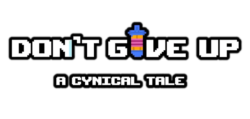



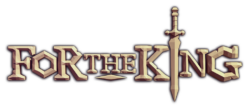











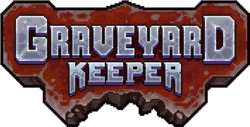







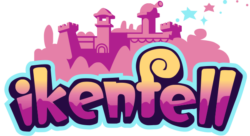



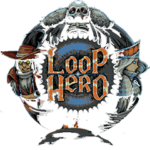



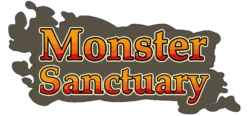







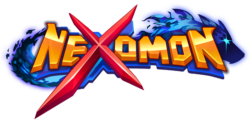



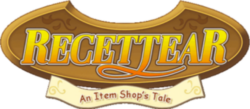



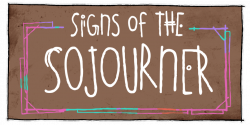







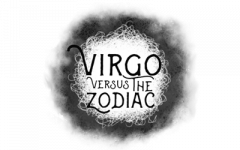




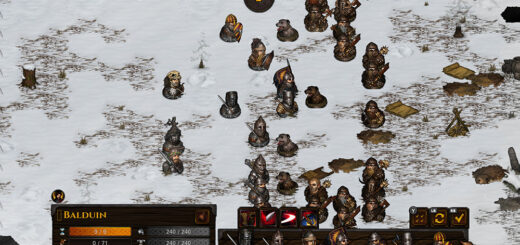




Recent Comments